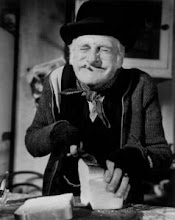Ever since a lunch when my Australian mate declared he could chew the leg off a skinny priest, I've realised that Australians are uniquely creative with the Queen's English.
Most Poms' hazy sense of the Australian vernacular stretches as far as strewth, dag or bonzer. But a competition by an online dictionary to find Australia's word of the year shows that the country is still chewing up English and spitting out something far more direct and interesting.
Have you always hated those tattoos hovering above the backside? Now you've got a name for them: arse antlers. Want a new euphemism for an obese person? Try salad dodger.
This kind of slang is not really surprising because Aussies have always excelled at insults, none more so than former prime minister Paul Keating, who liked to savage his parliamentary opponents as "gutless spivs" or "foul-mouthed grubs".
Most of the terms listed by the Macquarie Dictionary are gentler: tanorexics are people obsessed with sunbathing; Helengrad is the nickname for the New Zealand capital Wellington - implying it is dominated by their long-serving prime minister Helen Clark.
Many of Australia's 85 words of 2007, which you can vote for at the Macquarie Dictionary website, are typically dry observations about modern life, which apply across the western world. At work, we all suffer from password fatigue, having too many passwords to remember; infomania is that twitchy, distracted state brought on by constantly giving priority to the latest emails and text messages; pod slurping is the downloading of huge quantities of music or data onto an iPod or memory stick.
At home, you will find the floordrobe, an ironic term for that lazy kind of storage system which is actually a bedroom floor covered with discarded clothes; and Kippers, an acronym for adult children who refuse to leave home (Kids in Parents' Pockets Eroding Retirement Savings).
Some of these words are already gaining use around the world and may not even be uniquely Australian.
My friend who waxed lyrical about eating skinny priests and wrestling pigs in hallways has always worried that globalisation would herald the end of the Australian vernacular. He needn't be overly concerned, however. There are still plenty of new, uniquely Australian terms to play with - from toad juice, a liquid fertiliser made from crushed cane toads, to microgroms, those infuriatingly brilliant Aussie surfers who can't be more than 10 years old.
Useful for: Varieties of English / World Englishes

No comments:
Post a Comment